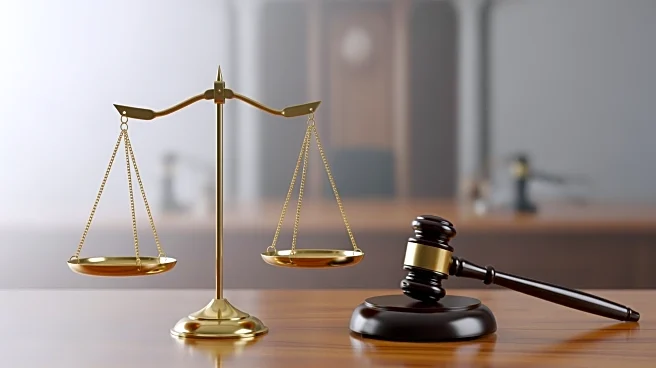What's Happening?
A federal judge in Tennessee has ordered the Department of Justice (DOJ) and the Department of Homeland Security (DHS) to cease making prejudicial statements regarding Kilmar Abrego Garcia's criminal case.
U.S. District Judge Waverly Crenshaw issued the order, highlighting that statements made by government officials, including DHS Secretary Kristi Noem, were exaggerated and potentially inaccurate. The judge emphasized that such statements could materially prejudice the ongoing criminal prosecution. The case involves Abrego Garcia, who was deported to El Salvador despite a court order barring his deportation due to fear of persecution. He was later brought back to the U.S. to face human smuggling charges, to which he has pleaded not guilty.
Why It's Important?
This order underscores the importance of maintaining impartiality and fairness in legal proceedings, particularly in high-profile cases involving immigration and criminal charges. The judge's decision to restrict prejudicial statements aims to ensure a fair trial for Abrego Garcia and prevent undue influence on public perception and judicial outcomes. The case also highlights ongoing tensions between immigration enforcement policies and judicial oversight, with potential implications for how similar cases are handled in the future.
What's Next?
The court has scheduled two days of hearings to further examine the motivations behind Abrego Garcia's prosecution. The judge has ordered the government to produce documents and emails related to the case, which could reveal whether the prosecution was retaliatory. The outcome of these hearings may influence future legal strategies and government policies regarding immigration and criminal prosecutions.









